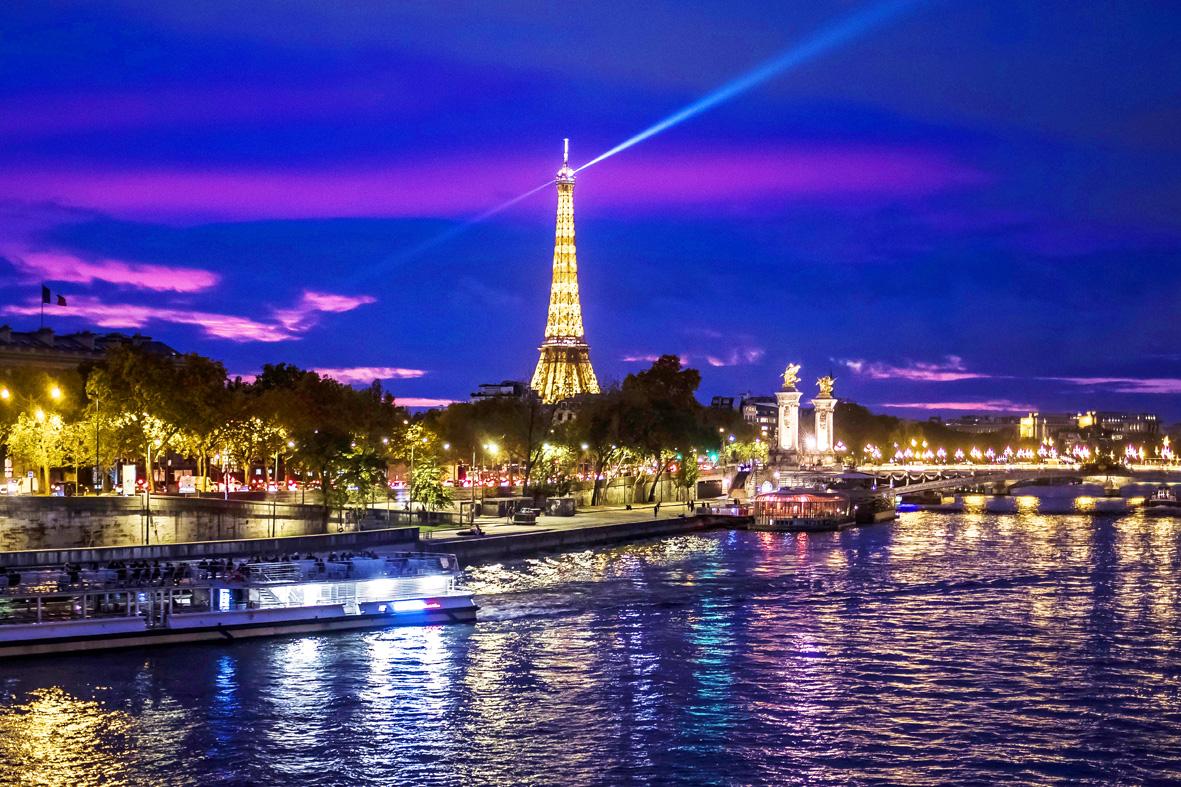Artificial light should be treated like other forms of pollution because its impact on the natural world has widened to the point of systemic disruption, research says.
Human illumination of the planet is growing in range and intensity by about 2 percent a year, creating a problem that can be compared to climate change, a team of biologists from the University of Exeter said.
Hormone levels, breeding cycles, activity patterns and vulnerability to predators are being affected across a broad range of species, they write in a paper published in the journal Nature Ecology and Evolution.

Photo: EPA-EFE
From reduced pollination by insects and trees budding earlier in spring, to seabirds flying into lighthouses and sea turtles mistakenly wandering inland to bright hotels in search of the dawn sun, their study-of-studies brings together 126 previous papers to assess the extent of the impact.
In all the animal species examined, they found reduced levels of melatonin — a hormone that regulates sleep cycles — as a result of artificial light at night.
Behavioral patterns were also disturbed in both nocturnal and diurnal creatures. Rodents, which mostly forage at night, were active for a shorter duration, while birds started singing and searching for worms earlier in the day.
The outcomes were not purely negative. The scientists said certain species in certain locations benefited from night-time light: some plants grew faster and some types of bats thrived.
However, they said the overall effect was disruptive, particularly to the insects drawn to singeing bulbs or fast-moving car lamps.
“What stands out is how pervasive the effects are. The effects were found everywhere — microbes, invertebrates, animals and plants,” said the lead author, Kevin Gaston, a professor at the university’s Environment and Sustainability Institute. “We need to start thinking about lighting in the way we think of other big systemic pressures like climate change.”
He said there had been an increase in studies in the past five to 10 years as the amount of lighting in the world has increased and the effects become more evident.
Satellite images of the Earth at night show how rapidly the problem is expanding geographically, but lights are also becoming more intense as expensive soft amber bulbs are replaced by greater numbers of cheap bright white LEDs.
Gaston urged governments, companies and individuals to be more discriminating.
“At the moment, we have the attitude that lighting is something we chuck out there and don’t think about it very much. But we need to think in terms of using it only when we need it, where we need it and how we need it,” he said. “It is another pollutant.”
Solving the lighting problem would require a change of mindset, he said.
“At the heart of this is a deep-rooted human need to light up the night. We are still in a sense afraid of the dark,” he said. “The ability to turn the night-time into something like the daytime is something we have pursued far beyond the necessity of doing so.”
Nearly half of China’s major cities are suffering “moderate to severe” levels of subsidence, putting millions of people at risk of flooding, especially as sea levels rise, according to a study of nationwide satellite data released yesterday. The authors of the paper, published by the journal Science, found that 45 percent of China’s urban land was sinking faster than 3mm per year, with 16 percent at more than 10mm per year, driven not only by declining water tables, but also the sheer weight of the built environment. With China’s urban population already in excess of 900 million people, “even a small portion

UNSETTLING IMAGES: The scene took place in front of TV crews covering the Trump trial, with a CNN anchor calling it an ‘emotional and unbelievably disturbing moment’ A man who doused himself in an accelerant and set himself on fire outside the courthouse where former US president Donald Trump is on trial has died, police said yesterday. The New York City Police Department (NYPD) said the man was declared dead by staff at an area hospital. The man was in Collect Pond Park at about 1:30pm on Friday when he took out pamphlets espousing conspiracy theories, tossed them around, then doused himself in an accelerant and set himself on fire, officials and witnesses said. A large number of police officers were nearby when it happened. Some officers and bystanders rushed

HYPOCRISY? The Chinese Ministry of Foreign Affairs yesterday asked whether Biden was talking about China or the US when he used the word ‘xenophobic’ US President Joe Biden on Wednesday called for a hike in steel tariffs on China, accusing Beijing of cheating as he spoke at a campaign event in Pennsylvania. Biden accused China of xenophobia, too, in a speech to union members in Pittsburgh. “They’re not competing, they’re cheating. They’re cheating and we’ve seen the damage here in America,” Biden said. Chinese steel companies “don’t need to worry about making a profit because the Chinese government is subsidizing them so heavily,” he said. Biden said he had called for the US Trade Representative to triple the tariff rates for Chinese steel and aluminum if Beijing was

Beijing is continuing to commit genocide and crimes against humanity against Uyghurs and other Muslim minorities in its western Xinjiang province, U.S. Secretary of State Antony Blinken said in a report published on Monday, ahead of his planned visit to China this week. The State Department’s annual human rights report, which documents abuses recorded all over the world during the previous calendar year, repeated language from previous years on the treatment of Muslims in Xinjiang, but the publication raises the issue ahead of delicate talks, including on the war in Ukraine and global trade, between the top U.S. diplomat and Chinese